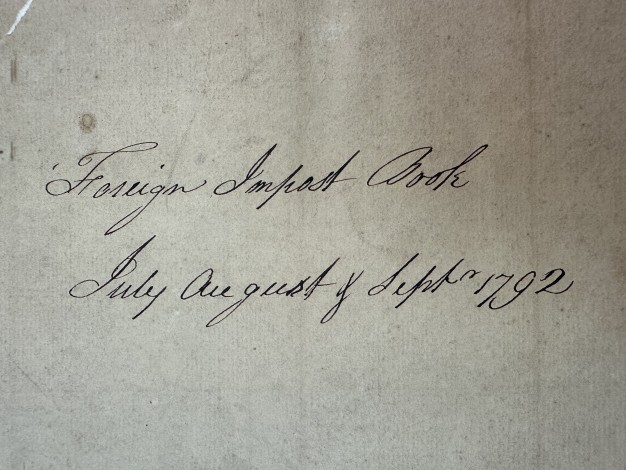Foreign Impost Book, Port of Philadelphia, 1792
I have recently been processing small accession materials in the APS collection. One item in particular is a foreign impost book from Philadelphia, labeled Foreign Impost Book, July August & September 1792. I was eager to process this record as someone who was born and raised in Philly. Upon first look, I recognized that this material needed some conservation prior to me being able to process the record. I contacted our conservators at APS and asked them for their opinion on how to proceed, and a game plan was developed for conservation after their initial examination.
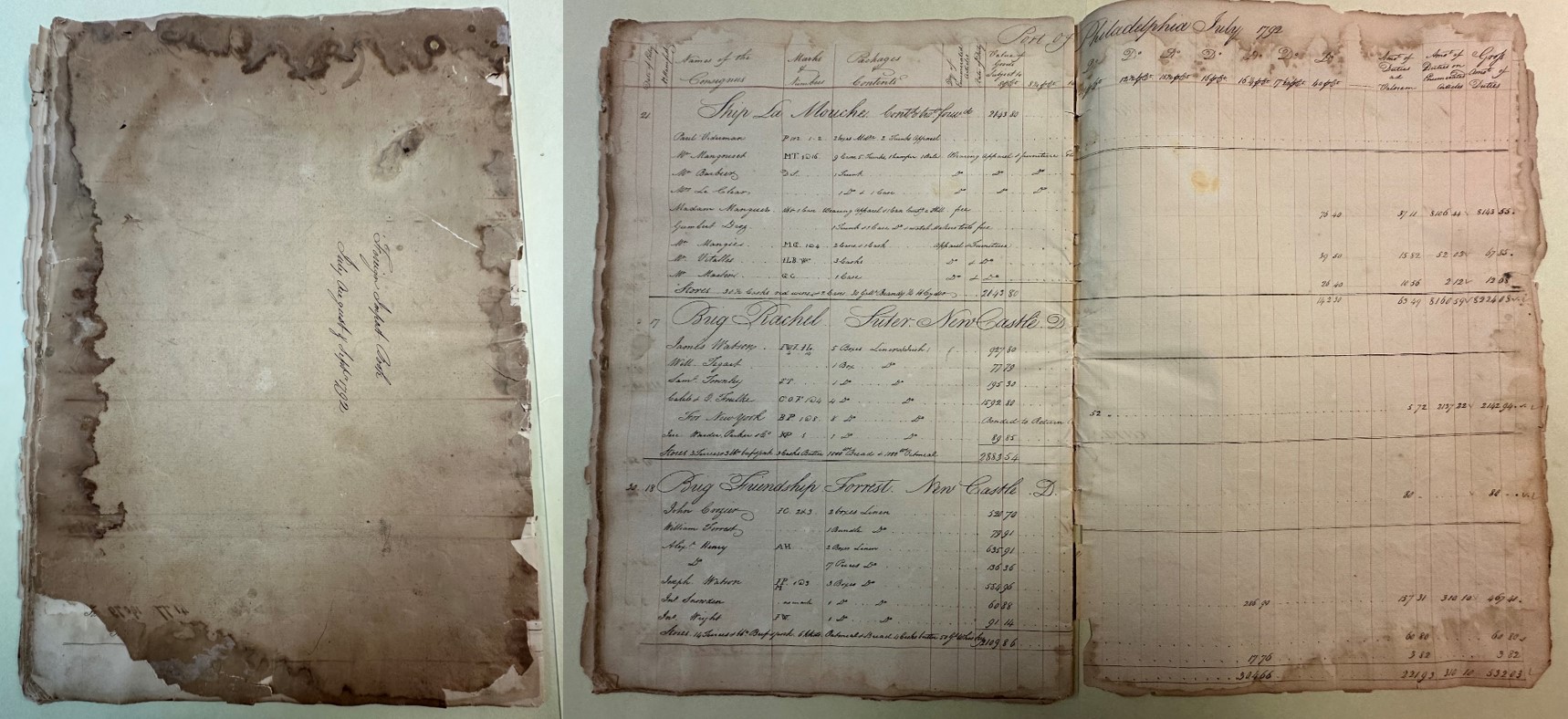
I visited the conservation lab again to take photographs of the book. The visit led to some findings about its current state. Meeting with APS conservators, Renée and Anne, only prompted more questions. What was the purpose of the foreign impost book? What is the intellectual and physical arrangement—at the time of creation and then storage? How and what are the best ways to conserve and process this historic material? To understand what this record is, I began to do a little bit of research while waiting for completed conservation treatment.
The APS holds a small microfilm collection that previously came from the David Library of the American Revolution (DLAR). This microfilm contains six reels of images from the Impost Books of the Collector of Customs at Philadelphia, 1789-1804. These records originally came from the National Archives, which were then digitized into microfilm.
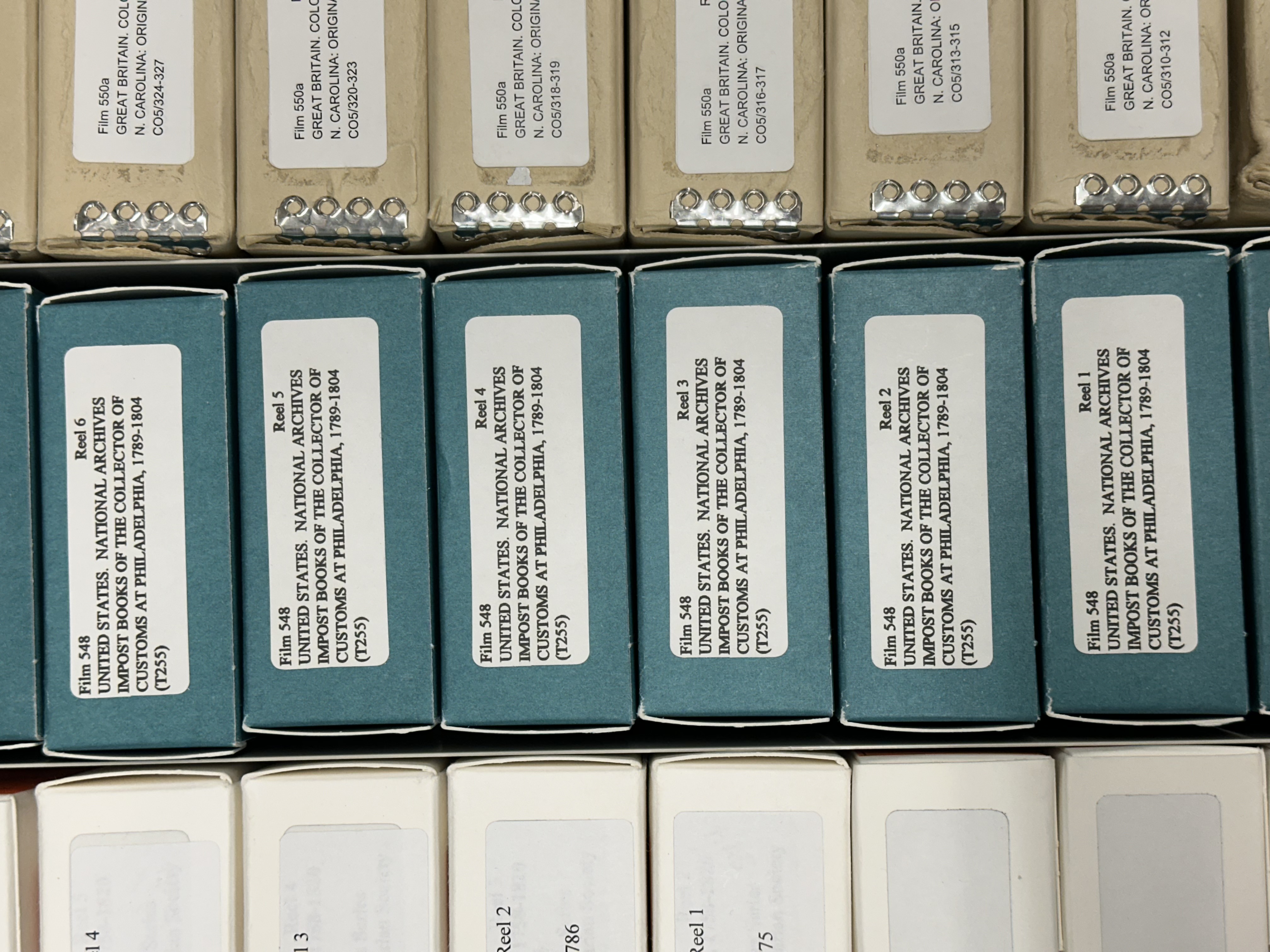
The DLAR microfilm inclusive dates are 1789-1804—overlapping with the 1792 impost records in question. I was curious to see whether the physical foreign impost book at APS would look similar to the digitized material on the microfilm. Fortunately, the ship impost and duties appear to have been recorded in the same manner in both records. I browsed through the pages for the months of July, August, and September of 1792. I found that one of the sheets from the microfilm contained a note that states “Merchandize Bro^t [brought] to New Acc^t [Account].” This small detail may describe why the foreign impost records were not kept together even though there are overlapping dates. And, ultimately, why they were not kept with the rest of the foreign impost books that are now held at the National Archives at Philadelphia.
The Foreign Impost Books were created as documentation from the Customs Service, which was established in 1789. The Custom Service existed as part of the federal government in the United States. A series of custom regulations were enacted in 1789. See the below legislation from Session 1 of Congress:
Chapter II. Duties on merchandise imported in the United States. An act for laying a duty on goods, wares, and merchandises imported into the United States. July 4, 1789
Chapter III. Duties on Tonnage. An act imposing duties on tonnage. July 20, 1789
Chapter V. Regulation of the Collection of Duties on Tonnage and on Merchandise. An act to regulate the collection of the duties imposed by law on the tonnage of ships or vessels, and on goods, wares, and merchandise. July 31, 1789
In Chapter 5, section 1, the act states that there would be “…established and appointed districts, ports, and officers…” The state of Pennsylvania is listed to contain one district, located in Philadelphia. A naval officer, collector, and surveyor for the district were then appointed at the Port of Philadelphia. The Foreign Impost Book held in the APS collection is dated three years after the Custom Service’s establishment.
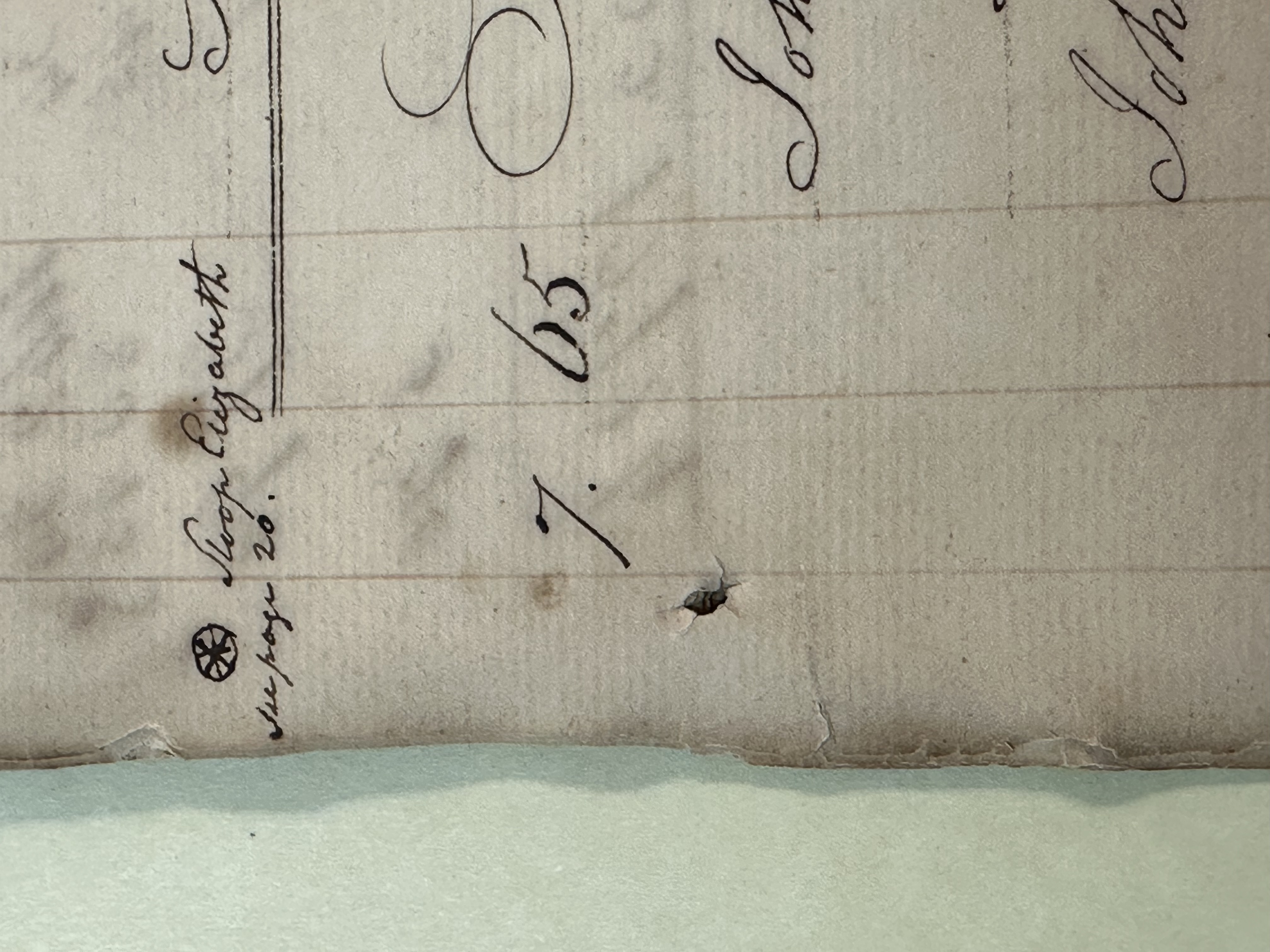
The APS’s Foreign Impost Book is only a fraction of the larger impost records, composed of 12 leaf sheets in total. Interestingly, the sheets were folded over in half, giving the material the appearance of a book. The oldest records sat on the bottom, with newer sheets laid on top. Renée believes that the pages were posted into a four-prong metal stand as new sheets were laid on top (similar to a receipt holder from a diner). The sheets were later removed from the metal prongs and then folded in half. After, someone numbered the sheets in the corner. The organization of the numbering fits the layout of the pages being folded in half as opposed to the same side or corner of the sheets when not folded.
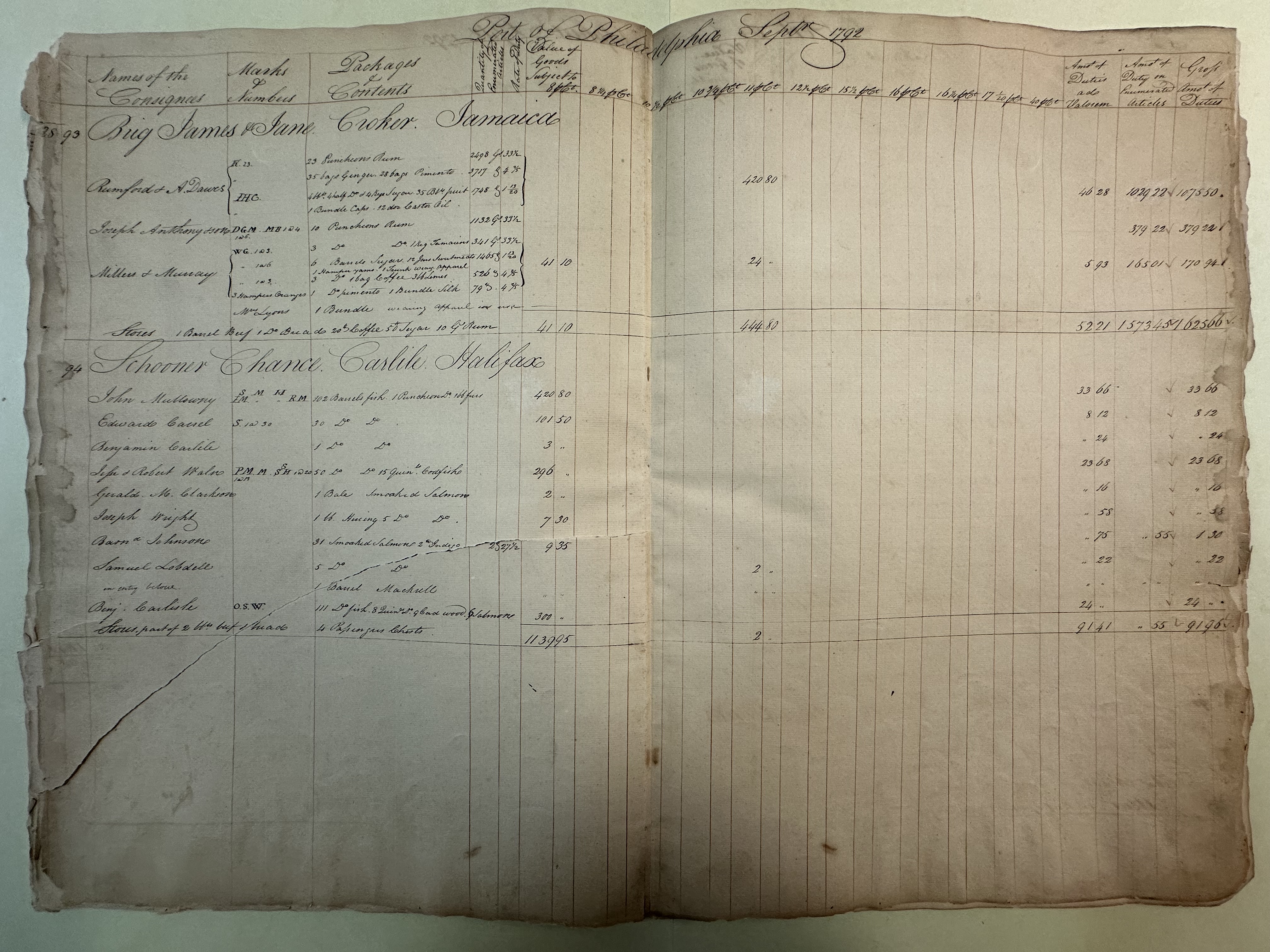
The physical Foreign Impost Book at APS is still undergoing conservation treatment. The processed title will be Foreign Impost Book, Port of Philadelphia in our finding aids. The material will be made available to the public once conservation and processing are complete. Thank you for your patience in waiting to research these records. In the meantime, please contact the APS Reference email ([email protected]) if you have any inquiries about this material.
See related materials:
Impost books of the Collector of Customs at Philadelphia, Mss.DLAR.Film.548
Sources:
U. S. Congress. U.S. Statutes at Large, Volume 1 (1789-1799), 1st through 5th Congress. United States, - 1799, 1789. Periodical. https://www.loc.gov/item/llsl-v1/.
Sess. 1, ch. 2. 1 Stat. 24
Sess. 1, ch. 3. 1 Stat. 27
Sess. 1, ch. 5. 1 Stat. 29

